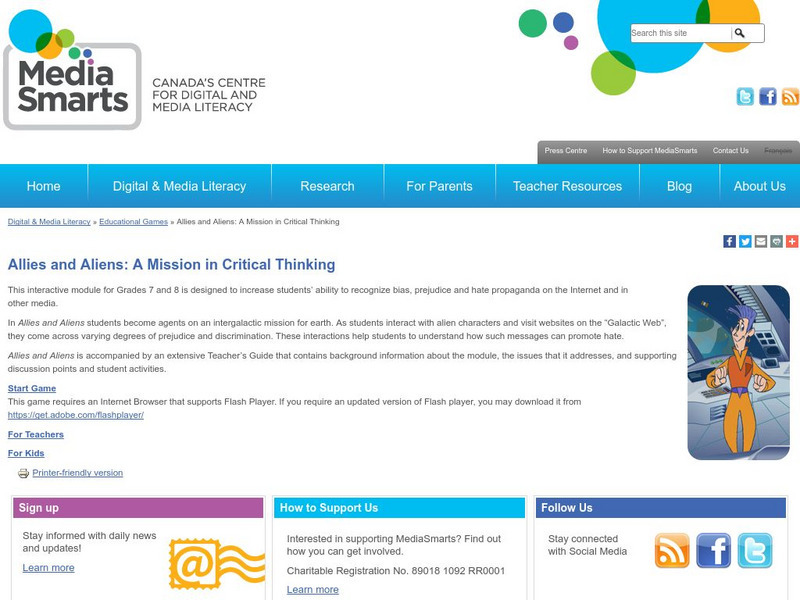Curated OER
Attitudes About Slavery in Franklin County, Pennsylvania
Students examine the historical attitudes towards slavery in Pennsylvania. They read transcriptions from two Pennsylvania newspapers and compare/contrast the county's Republican and Democratic Parties' positions on slavery.
Curated OER
Massacre or Street Fight? A Study of Images Relating to the Boston Massacre
Fifth graders examine how the merchants of the city allowed the economy to flourish. Using primary sources, they discover how international trade helped to develop the United States. They also identify the role of Elias Hasket Derby, a...
iCivics
I Civics: Propaganda: What's the Message?
Students will learn what propaganda is and how it uses different techniques to sway public opinion by looking at examples of advertisements and campaigns used by governments and private businesses.
Other
How to Detect Media Bias & Propaganda [Pdf]
A portion of a larger book, this site is critical of journalism as it is presently practiced. This portion offers characteristics of critical news consumers.
Sophia Learning
Sophia: Identifying Bias
This lesson explains how to identify an author's bias. This tutorial lesson shares a short slideshow with the lesson's content. An additional link is also provided to supplement this lesson on bias.
Sophia Learning
Sophia: Critical Reading as a Learning Strategy
This tutorial focuses on critical reading using a downloadable PowerPoint presentation, "Critical Reading 101," which includes separating fact from opinion, 6 propaganda techniques, and 6 common fallacies in reasoning. Also provided is...
Johns Hopkins University
Johns Hopkins University Sheridan Libraries: Information and Its Counterfeits
Distinguishing information from propaganda, biased reporting and misinformation is an important skill. This short article defines each of these, and provides examples of each.
McGraw Hill
Glencoe: Recognizing Propaganda: Loaded Language
Lesson plan designed for consumer health class, that is also useful for media literacy. Contains a link to an ad for an abdominal strengthening machine that provides the basis of the lesson plan. SL.9-10.2 eval & integrate sources
Media Smarts
Media Awareness Network: Allies and Aliens: A Mission in Critical Thinking
This interactive module for Grades 7 and 8 is designed to increase students' ability to recognize bias, prejudice, and hate propaganda on the Internet and in other media. Includes an extensive teacher's guide.
Other popular searches
- Free Bias and Propaganda
- Bias and Propaganda Tactics
- Author's Bias & Propaganda
- Authors Bias & Propaganda
- Propaganda and Bias
- Bias and Propaganda Ww2









